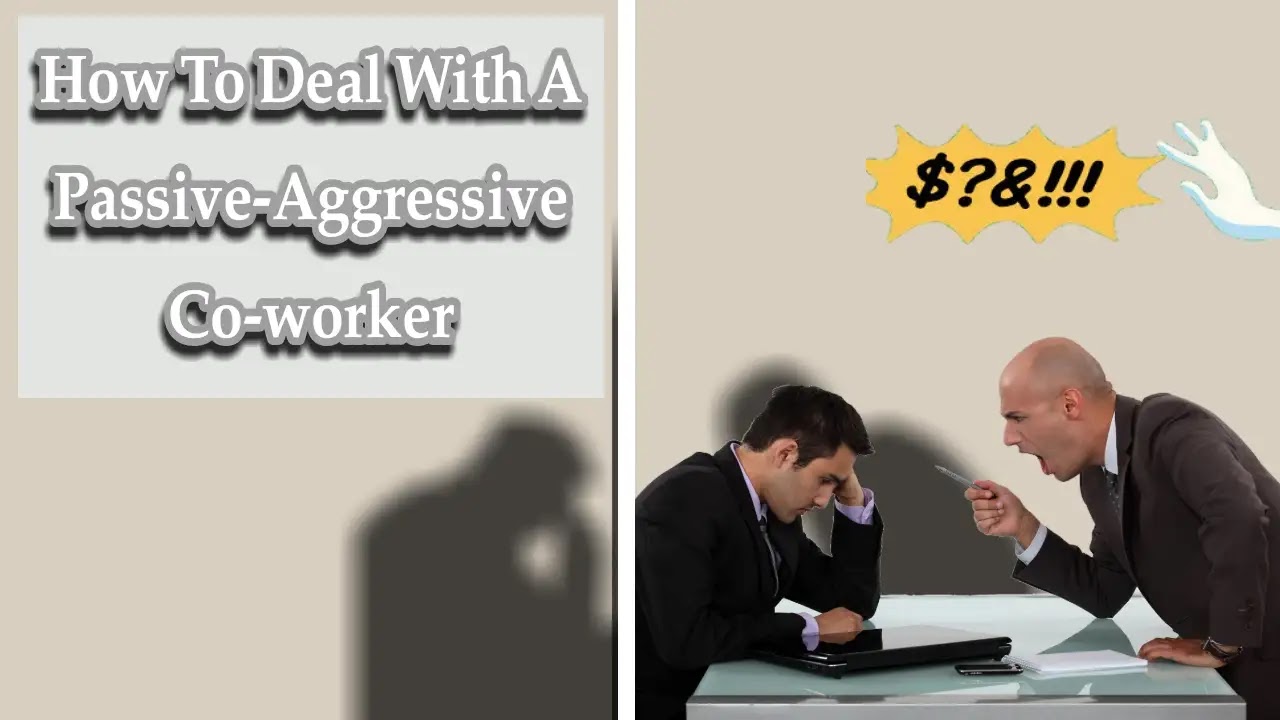We all know this person—someone who appears like the paragon of helpfulness and industriousness to your face, but whose actions speak otherwise. He or she may be that subordinate who keeps on flubbing duties in order to consistently to be deemed unintentional. He or she may be that workmate who unfailingly undermines you, interrupting you at meetings and saying bad things about you every chance they get. Then when you finally blow your lid, he or she gets everyone to perceive you as “overreacting”, or even worse, “crazy.”
And by the way, he or she does all this with an innocuous smile on the face.
Read more: 5 Ways To Be An Awesome Communicator At Work
“I was only trying to help,” the passive-aggressor would say. “You didn’t tell me that,” “I forgot”—the list of gratingly sordid excuses goes on. So how do you deal with a passive-aggressive person in the office? Here are ways to fend off this fiendish personality without turning diabolic yourself:
Ways to Deal with a Passive-Aggressive Colleague
- First of all, are you sure the problem person’s behaviour bears all the marks of passive aggression? It pays to ask yourself if it’s really the thing you’re defending against, that you’re not just imagining things. There’s a difference between healthy and toxic conflict in the workplace.
- Otherwise, the first step toward dealing with passive aggression is to recognise it for what it is: subtle, covert hostility. Take responsibility for your actions but don’t let the passive-aggressor lead you into the downward path of self-blame either.
- If you’re a manager whose expectations have been let down time and again by a passive-aggressive employee, then it’s time to put those expectations in writing. Specify parts of a general project and set a deadline for each of these tasks. That way, you can hold your subordinate more accountable.
- Go one step further by holding a meeting with your staff, your passive-aggressor included. Talk at length about your expectations, and get everyone to agree with you verbally. If you see hints of resistance or confusion, make it a point to see if you were understood and get an affirmative from all of them. This automatically establishes a cadre of witnesses who can back you up in case of an escalating situation.
- Putting it in writing also means proper documentation for your conversations with the passive-aggressor. This is a handy medium for checking his or her word against what s/he really did. Initially, you will treat this document as a personal tool, if only to remind yourself that you’re not dreaming all this up. Put a date and time next to each vexing situation. When the need arises, you can send this document as a memo to your boss.
- However, avoid email exchanges with the person in question, as objective third parties can easily misinterpret the tone in your words. Read also: Master The Art of Persuasion - Learn how to convince
- Sometimes, the passive-aggressor may be the most charismatic person in the office, such that your superior and teammates may be blindly favouring him. In this case, it is important to be aware where you stand, and know whom to turn to as allies.
- If you’re in a position of power, give forums where employees can give vent to their grievances without fear of reprisal. Passive aggression, after all, stems from bottled emotions. Many passive-aggressors would rather sabotage a project than complain against it.
- Always remember that losing your cool would be playing into the passive-aggressor’s game. Don’t fuel the fire the passive-aggressive co-worker has been dying to light. Your loss of composure is their win, and you will likely position yourself as the villain thereafter. To prevent this from happening, zig when he or she expects you to zag. Act as though his or her actions are sincere, even if you’re totally convinced otherwise.
- Sometimes the best way to deal with passive aggression is to nip it at its bud. Most passive aggressors suffer from low self-esteem. When you need to chastise a passive aggressor, try to balance your telling-off with praise. Ply the individual with reminders of his or her past achievements with the organisation, even if it means jogging your memory harder since they belong to the distant past.
Not your problem
When you have done all you can and verging on wit’s end, it always pays to recognise the passive aggression for what it is: bullying. If this means escalating the issue to management, then so be it.
Read also:
- These 10 Things Will Make You Highly Persuasive
- 5 Ways People Ruin Their Story Telling Potential
- Great Speakers And Presenters Do These 9 Things
It can be hell on earth, going to work every day where you have to be in close proximity or collaboration with a helplessly “shady” person. Remind yourself that it’s not your problem, and if you have to find opportunities elsewhere to keep this person at bay, then do it for the sake of your mental health.


Comments
Post a Comment